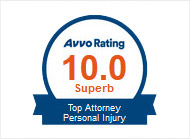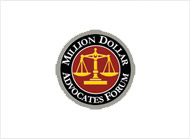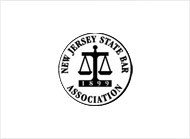Getting pulled over by police is stressful, especially if you’re suspected of driving under the influence (DUI). One of the most common questions people ask in this situation is, “Can I refuse a breathalyzer test in New Jersey?” The answer is complicated, and the consequences for refusing may be more serious than you think. Understanding your rights and the laws around breath testing can help you make informed decisions—and avoid long-term consequences.
Understanding Implied Consent in New Jersey
New Jersey, like many other states, follows what’s known as an “implied consent” law. When you get a driver’s license in New Jersey, you automatically agree to submit to chemical testing if a police officer lawfully suspects you of driving under the influence of alcohol.
This agreement includes breath testing, which police officers commonly use to measure your Blood Alcohol Content (BAC). Refusing the test does not mean you’ll avoid consequences—in fact, it triggers its own set of penalties, regardless of whether you’re later convicted of DUI.
Is It Legal to Refuse a Breathalyzer Test?
Technically, yes—you can refuse a breathalyzer test. But refusing is not without penalty.
Under N.J.S.A. 39:4-50.2, refusing to submit to a breathalyzer after a lawful arrest carries automatic administrative and criminal penalties, including:
- Immediate license suspension
- Fines
- Possible ignition interlock device installation
- Possible jail time for repeat offenders
These penalties apply even if you are not convicted of DUI. The refusal is treated as a separate violation under New Jersey law.
Penalties for Refusing a Breathalyzer Test in New Jersey
Refusal penalties increase depending on whether it’s your first, second, or third offense:
First Offense
- License suspension for 7 to 12 months
- Fine of $300 to $500
- Ignition interlock device required for 9 to 15 months
- Referral to an Intoxicated Driver Resource Center (IDRC)
Second Offense
- License suspension for 2 years
- Fine of $500 to $1,000
- Ignition interlock device for 2 to 4 years
- Additional IDRC and community service requirements
Third or Subsequent Offense
- License suspension for 8 years
- Fine of $1,000
- Ignition interlock device for 2 to 4 years
- Possible jail sentence of up to 90 days
Keep in mind: refusal penalties are in addition to any DUI charges if you’re also found guilty of operating a vehicle while intoxicated.
Can Police Force You to Take a Breath Test?
In most DUI stops, the breathalyzer is administered at a police station using a device called the Alcotest, which is approved for use in New Jersey. Police cannot physically force you to take the test, but they do not need your consent to enforce penalties for refusal.
In some cases—such as accidents involving injury or death—police may seek a court order to obtain a blood sample. Courts are more likely to approve such requests when there’s strong evidence of intoxication.
Field Sobriety vs. Breath Testing
Drivers often confuse field sobriety tests with breath testing, but they are not the same.
- Field Sobriety Tests (FSTs) are physical tests performed on the roadside (e.g., walking in a straight line or standing on one leg).
- These tests are voluntary—you are not legally required to take them, and you cannot be penalized just for refusing.
Breathalyzer tests, on the other hand, fall under implied consent. Refusing a breath test results in automatic penalties, as explained above.
Will Refusing a Breath Test Help Your Case?
Some drivers believe that refusing the test will help them avoid a DUI conviction, but this is rarely the case.
Refusal can be used as evidence of guilt in court. Prosecutors often argue that a refusal indicates consciousness of guilt. In many cases, officers also rely on other types of evidence, including:
- Dashcam footage
- Body camera recordings
- Officer testimony
- Field sobriety performance
- Odor of alcohol or slurred speech
In short, refusing a breath test won’t necessarily prevent a DUI charge—and it adds additional legal problems.
Defending Against Refusal Charges
Despite the penalties, there are valid defenses that can be raised if you’re accused of refusing a breathalyzer. These may include:
- The officer did not have probable cause to request the test.
- The officer failed to read the standard refusal warnings.
- The test equipment was not functioning properly.
- The instructions for taking the test were unclear or misleading.
- You were experiencing a medical condition or language barrier that prevented you from understanding the request.
Every case is different, and these defenses depend heavily on the facts surrounding your arrest. That’s why it’s critical to consult with an experienced DUI attorney as soon as possible.
Why Legal Representation Matters
If you’re facing DUI and/or breath test refusal charges in New Jersey, you’re looking at complex laws, overlapping penalties, and potentially life-altering consequences. Navigating this process alone can be overwhelming and risky.
An experienced DUI defense attorney can:
- Review the legality of the stop and arrest
- Analyze whether the officer followed proper procedures
- Challenge the accuracy of the breath test (if given)
- Seek to have refusal charges reduced or dismissed
- Advocate for alternatives to license suspension
- Negotiate a favorable plea or take your case to trial if needed
Having legal counsel gives you a fighting chance to preserve your license, protect your record, and reduce your penalties.
Get Help from a Trusted New Jersey DUI Attorney
If you’ve refused a breathalyzer in New Jersey or are facing DUI charges, don’t wait to get help. These charges are serious, and the penalties can affect your driver’s license, employment, and freedom. You need an advocate who understands the law, knows the local courts, and will fight for your rights.
Gregg A. Wisotsky, Esq., a partner at Javerbaum Wurgaft Hicks Kahn Wikstrom & Sinins, PC, has years of experience representing clients in DUI and refusal cases across New Jersey. He begins with a thorough investigation of the facts and builds a defense based on your specific situation. Whether negotiating a reduction or taking the case to trial, he’s committed to achieving the best possible outcome.
We offer free phone consultations for new clients. If you’re unsure of your options or want an honest assessment of your case, call 973-898-0161 or contact us online to schedule a private meeting.
We proudly serve clients across New Jersey, including Morris County and surrounding areas.












